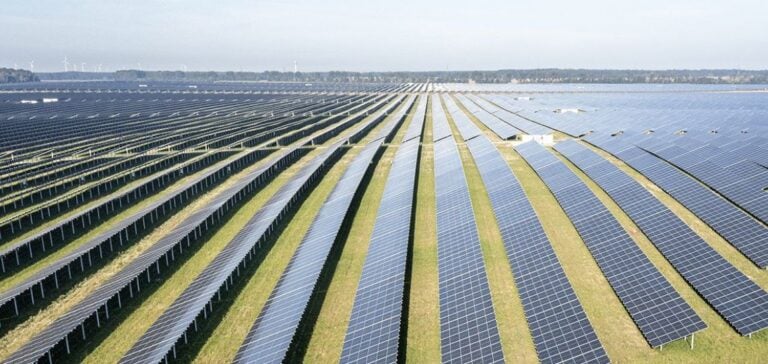At a time when the world’s energy landscape is in a state of flux, Germany has once again distinguished itself in terms of innovation and sustainability, with the completion of a solar park in Küpfendorf by SENS (Iqony Solar Energy Solutions) in partnership with Vento Ludens. Whether Burgos in Spain, Halsdorf in Germany or Dalgo Pole in Bulgaria, it’s clear that SENS – a subsidiary of Iqony GmbH – specializes in the construction of solar power plants, demonstrating the ongoing commitment of many countries to the energy transition.
Challenges and deployment
Deploying this system has not been without its obstacles. Located in southern Germany’s Swabian Alps, Küpfendorf’s rocky topography posed a number of challenges for the installation of the 45,000 photovoltaic modules. The SENS team had to use their ingenuity to overcome these difficulties, in particular by drilling special holes to ensure the stability of the structures.
But geography wasn’t the only challenge. Connecting to the power grid proved to be a complex task, necessitating the installation of a nine-kilometre-long cable route to transport the solar electricity to where it was needed. This is not Germany’s first attempt to optimize solar electricity. By the way, the solar park, which started operating in March 2023, has a total output of 28,000 MWh, enabling Germany to reduce its CO2 emissions by 13,000 tonnes a year – according to SENS.
Partnership for a Green Future
SENS and Vento Ludens have joined forces in the quest for sustainable solar energy: SENS was responsible for EPC services (engineering, procurement and construction), while Vento Ludens was in charge of developing the ground-mounted system. This effective partnership demonstrated the importance of collaboration between the various players in the industry to achieve projects of this scale. Christian Müller, project manager at SENS and responsible for the smooth running of the work, points out that the aim of this partnership is to “increase the proportion of solar energy in large steps”. To achieve this, he says, “a strong team, innovative thinking and solutions that go beyond the norm” are required.
Future prospects
The solar park in Küpfendorf thus embodies technological and environmental advances in the transition to more sustainable energy sources. With this project, the German government intends to provide an alternative to fossil fuels. Above all, the success of the solar park demonstrates the feasibility and profitability of renewable solutions, providing inspiration for other similar projects around the world.
Given the energy capacity it generates, the solar park in Küpfendorf crystallizes Germany’s inclination towards clean, sustainable energy models that are, above all, accessible to all.






















